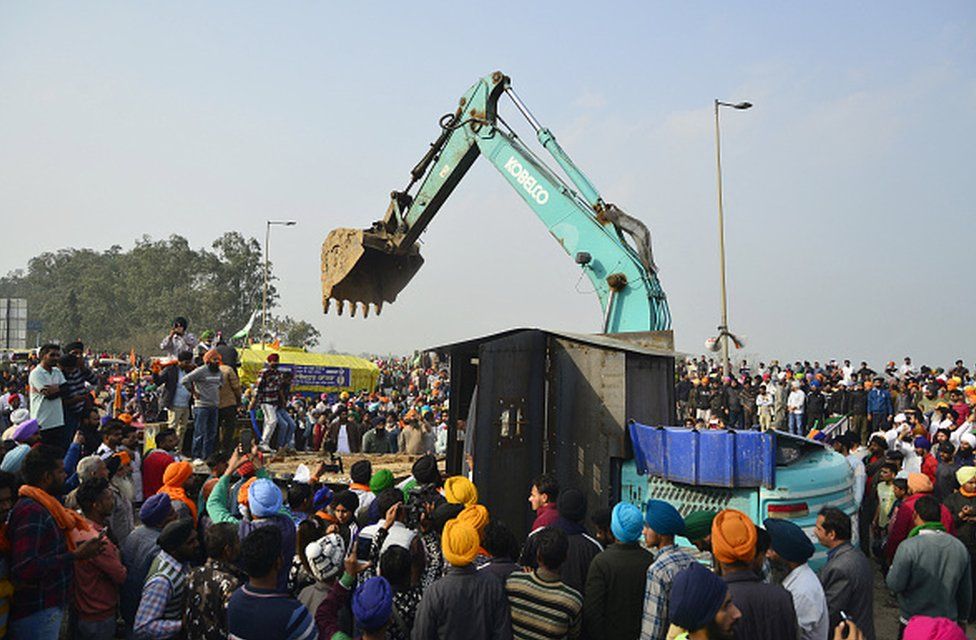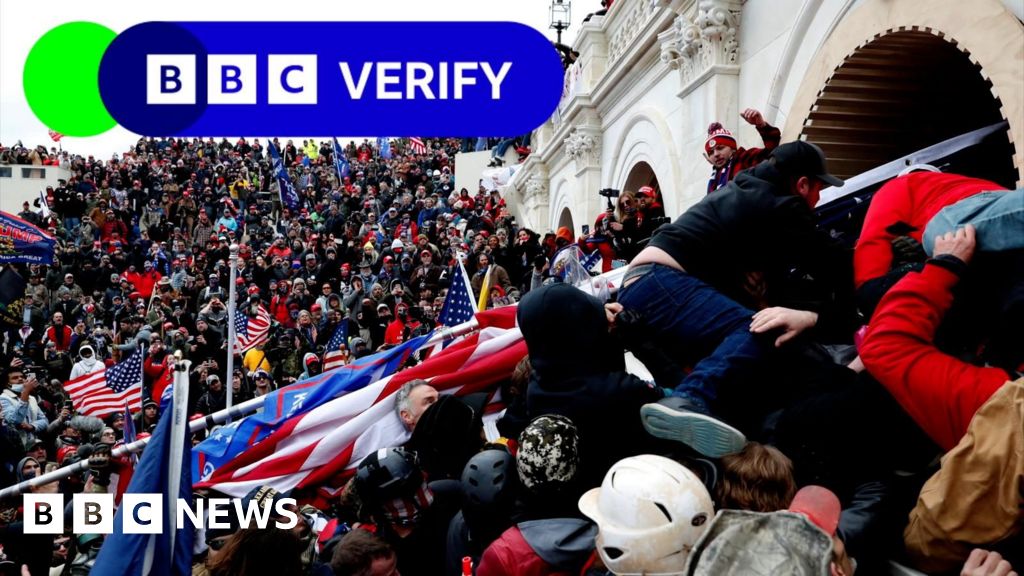ARTICLE AD BOX
 Image source, Getty Images
Image source, Getty Images
The farmers are resuming their protest after talks fell through earlier this week
By Meryl Sebastian
BBC News, Kochi
Protesting Indian farmers are resuming their march on capital Delhi after four rounds of talks with the federal government failed to end the deadlock.
The farmers, who are demanding assured prices for their crops, say are coming prepared with months of supplies.
Delhi's borders have been fortified with layers of barricades, concrete blocks and barbed wires to stop their entry.
But protesters have warned they would use heavy machinery to push through.
On Wednesday, visuals from the Shambhu border between the neighbouring Punjab and Haryana states showed thousands of protesters preparing to push past barriers using bulldozers and earthmovers.
Located at a distance of about 200kms (125 miles) from Delhi, farmers have been stationed here since last week after authorities stopped them from marching ahead.
Many of them were also seen distributing masks, gloves and safety suits to protesters.
Police in Haryana have asked their counterparts in Punjab to stop women, children and journalists at least 1km away from the borders for their safety. They have also asked the Punjab police to seize bulldozers and other heavy machinery from the protesting sites.
In Delhi, security has been tightened and large gatherings have been banned for a month.
Farmers' leaders say their march is peaceful and have asked the government to allow them entry into the capital.
"We tried our best from our side. We attended the meetings and discussed every issue, now the decision lies with the government. We will remain peaceful but we should be allowed to remove these barriers and march towards Delhi," farm leader Sarwan Singh Pandher told reporters.
Image source, Getty Images
Image caption,The farmers say they are prepared with months of food and other supplies to continue their protest
Last week, authorities clashed with the protesters, firing tear gas and plastic bullets at them in a bid to halt the march.
They fear a repeat of 2020, when thousands of farmers hunkered down at Delhi's borders for months - braving extreme temperatures and Covid - against controversial agriculture reforms. Protesters blocked key highways connecting the capital to its neighbouring states. Dozens died in the year-long protest which ended only after the government agreed to repeal the laws.
The latest round of protests also come months before the general elections in which Prime Minister Narendra Modi's Bharatiya Janata Party (BJP) is seeing a third term in power. Farmers form an influential voting bloc in India and and analysts say the government will be keen not to anger or alienate them.
The government has so far held four rounds of meetings with farmers' unions. Protesters say the government did not keep promises made during the 2020-21 protest, and also have demands including pensions and a debt waiver.
On Tuesday, farmers' leaders rejected a proposal to buy some crops at assured prices on a five-year contract, saying the offer was "not in their interest".
The government had proposed buying pulses, maize and cotton at guaranteed floor prices - also known as Minimum Support Price or MSP - through cooperatives for five years.
But the farmers say that they will stand by their demand of a "legal guarantee for MSP on all 23 crops".

 11 months ago
54
11 months ago
54








 English (US) ·
English (US) ·